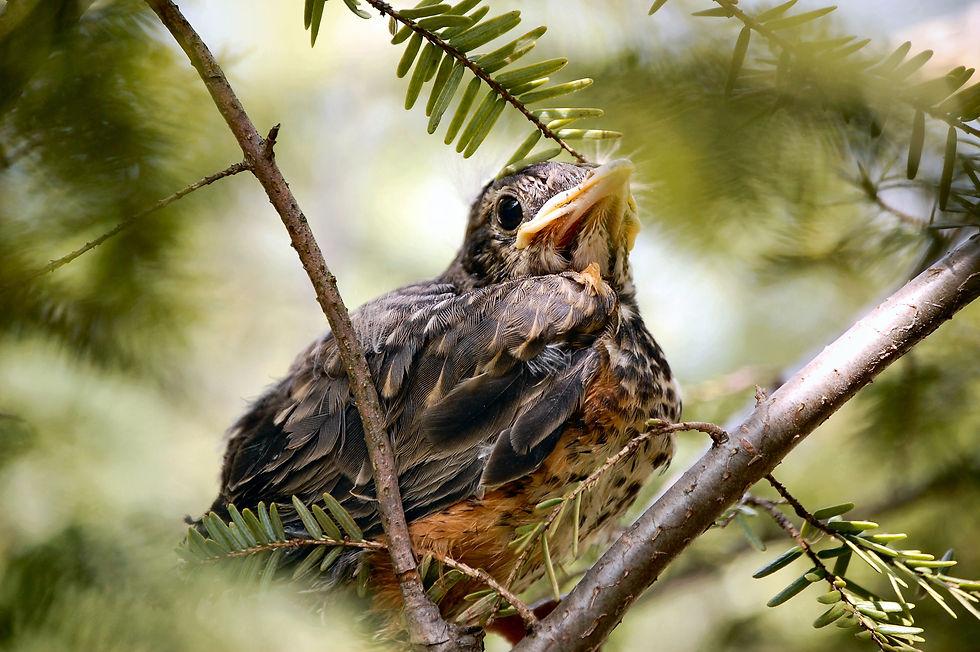Backyard Birding: Baby Birds

Nesting season is upon us! The Bluebirds have been nesting for a couple of months and have already started their second brood. House Finches are feeding nestlings. Robins are sitting on eggs now. Cardinals too. Other birds will soon follow.
How long does it take nesting to occur?
All birds lay one egg per day. Once their clutch is complete, it takes about 2 weeks (+/-) for most eggs to hatch and another 2 weeks until the young leave the nest. Then they will care for their fledglings for about another 2 weeks before starting again. These numbers vary from species to species, but 2 weeks is a good rule-of-thumb for each stage.
The first couple of weeks out of the nest are the hardest for baby birds. They usually leave the nest fully grown, but often their feathers are not yet complete. This means, they usually have difficulty flying and maneuvering through the landscape.
As yard owners, there are a few things we can do to help "our" baby birds survive and thrive.
It's always good to provide food and water. We can offer mealworms at our feeders as they high source of protein. However, the most important thing we can do is provide shelter in the form of low plantings and shrubs to give fledglings a place to hide from the weather and predators. If you happen to clean up sticks and branches in your yard from time to time, considering piling them up off to the side as shelter locations.
Ideally, cats should be kept indoor always, but if you cannot do that, consider keeping yours indoors during the fledging season. Cats are some of the most efficient predators and take millions of baby birds each year. As noted above, the fledging season is pretty quick, so Mr. Skittles will only be confined for short period of time.

What should you do if you find a baby bird outside of the nest?
Generally, it is best to leave it where you found it. It may seem pretty young to us, but sitting in a nest with squawking brothers and sisters, a baby bird is really a proverbial sitting duck for a predator. Outside of the nest, they can run, fly, hide, and use other techniques to avoid becoming a meal. And they are very good at it, too. The parents are probably around somewhere, and if they do not seem to be, they may either be laying low themselves so as not to draw more attention to the situation, or they may be off looking for food to bring to their fledglings.
If you find a baby bird that doesn't yet have a good feather coat, it is possible that it fell out of the nest from a storm or was spooked out by accident. In this case, you can gently lift it and place it back in the nest, if you know exactly where it came from. However, don't place it in any ol' nearby nest that you happen to find or a make shift nest, because the parents have a specific search image of the location of their own nest. They ignore nests that are not their own.
So although it is often pulls at our heart strings to do nothing, it is usually best to let nature run its course and leave baby birds where they are.



















